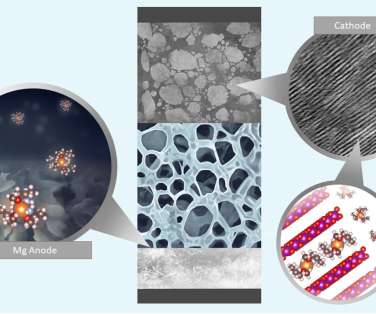UMD, Army Researchers design new electrolyte enabling high energy density rechargeable Mg and Ca batteries
Green Car Congress
OCTOBER 13, 2021
Rechargeable magnesium and calcium metal batteries (RMBs and RCBs) are promising alternatives to lithium-ion batteries because of the high crustal abundance and capacity of magnesium and calcium. This work provides a versatile electrolyte design strategy for divalent metal batteries. —Hou et al.
























Let's personalize your content